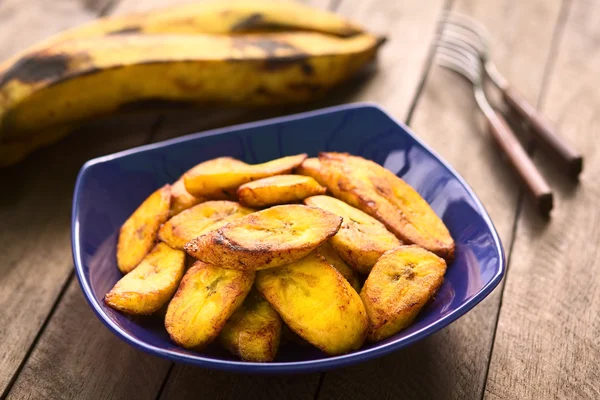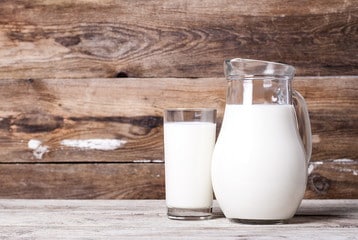Cholesterol is a type of fat that is found in certain foods and is produced by the liver. High cholesterol levels in the body can lead to serious health problems, such as heart disease and stroke.
There are two types of cholesterol, and the type we are referring to in this article is LDL, also known as bad cholesterol. It is important to understand the types of foods that contribute to high cholesterol levels and to make changes to your diet to maintain healthy cholesterol levels.
Here are some of the high-cholesterol foods in Nigeria that should be limited or avoided:
1. Fried Foods

Fried foods are high in unhealthy fats, which can contribute to high cholesterol levels. Fried foods, such as fried plantains, fried potatoes, and fried yams, are popular in Nigeria, but it is important to limit your intake of these foods and opt for healthier cooking methods, such as baking or grilling.
2. Processed Meats

Processed meats, such as sausages (hot dogs), bacon, and ham, are high in saturated fats and cholesterol. These foods should be limited or avoided, as they can contribute to high cholesterol levels.
3. High-Fat Dairy Products

Dairy products, such as cheese, cream, and whole milk, are high in saturated fats and cholesterol. Opt for low-fat or fat-free dairy products instead, as they contain less unhealthy fats and cholesterol.
4. Coconut Oil
Some Nigerians use coconut oil for cooking, but it is high in saturated fats, which can contribute to high cholesterol levels. It is best to use other oils, such as olive oil, which are lower in unhealthy fats.
According to a 2020 study, coconut oil consumption significantly increased LDL-cholesterol.
5. Palm Oil
Palm oil is a common ingredient in many Nigerian dishes and is high in saturated fats. It is best to limit or avoid foods that contain palm oil and opt for other cooking oils, such as sunflower or canola oil, which are lower in unhealthy fats.
6. Butter

Butter contains saturated and trans fats, both of which will likely increase the low-density lipoprotein (LDL) cholesterol, or bad cholesterol, in a person’s blood.
In addition, butter is high in calories and fat, so people should eat it in moderation or replace it with healthy unsaturated fats.
7. Baked goods

Most baked goods are among the high cholesterol foods in Nigeria because they often contain high levels of saturated and trans fats, which are known to increase LDL (bad) cholesterol levels in the body.
These fats are commonly found in ingredients such as butter, margarine, cream, and palm oil, which are frequently used in Nigerian baked goods and sweets.
Furthermore, many Nigerian baked goods and sweets are made with refined flour and sugar, which can also contribute to high cholesterol levels.
Cookies, cakes, pastries and doughnuts are some examples.
Please note
It is important to remember that not all fats are bad for cholesterol levels. Unsaturated fats, such as those found in nuts, seeds, and fish, can actually help to reduce cholesterol levels and improve heart health.
In addition to limiting high cholesterol foods, it is also important to incorporate healthy foods into your diet to maintain healthy cholesterol levels. Foods that are high in fiber, such as fruits, vegetables, and whole grains, can help to lower cholesterol levels, as can foods that are high in omega-3 fatty acids, such as fatty fish and nuts.
Exercise is also important in maintaining healthy cholesterol levels. Regular physical activity can help to reduce bad cholesterol levels and increase good cholesterol levels, which can help to lower the risk of heart disease and stroke.
Conclusion
High cholesterol levels can lead to serious health problems, so it is important to be aware of the types of foods that contribute to high cholesterol levels and to make changes to your diet to maintain healthy cholesterol levels. By limiting high-cholesterol foods, such as fried foods, processed meats, and high-fat dairy products, and incorporating healthy foods into your diet, such as fruits, vegetables, and whole grains, you can maintain healthy cholesterol levels and reduce the risk of heart disease and stroke.
YOU SHOULD ALSO READ THIS:
- 7 Common Healthy Legumes In Nigeria
- Nigerian Foods An Ulcer Patient Should Avoid
- 7 Healthy Fermented Foods In Nigeria
- 10 Nutritious Calorie-Dense Foods In Nigeria
- 5 Healthy Bitter Foods In Nigeria
- 10 Nutritious Igbo Foods In Nigeria
- 10 Nutritious Yoruba Foods in Nigeria
- 7 Healthy Cheapest Foods In Nigeria
- 10 Nutritious Hausa Foods in Nigeria
- 10 Healthy Vegan Foods In Nigeria
- 10 Acidic Foods In Nigeria
- 15 Healthy Nigeria Foods That Reduce Belly Fat
- 8 Nutritious Nigerian Foods For Cold Weather
- 7 Healthiest Cooking Oils in Nigeria
Collins Nwokolo is a human physiologist, writer and health enthusiast. He loves writing helpful articles on health and fitness, which he enjoys sharing with everyone.





